The rapidly progressive glomerulonephritis (Crescentic glomerulonephritis) is a form of glomerulonephritis. It is characterized by its rapidly progressing course.
What is rapidly progressive glomerulonephritis?

© designua - stock.adobe.com
Glomerulonephritis is an abacterial inflammation that usually affects both kidneys. In the rapidly progressive glomerulonephritis (RPGN) the typical symptoms of kidney inflammation occur. However, the symptoms worsen very quickly with this form, so that kidney failure can occur within a very short time.
Rapidly progressive glomerulonephritis is therefore an emergency that requires rapid intensive care treatment. Based on its causes, rapidly progressive glomerulonephritis can be divided into three types.
causes
Type 1 RPGN is caused by antibodies against the membrane of the kidney corpuscles. Goodpasture syndrome is an example of this form of glomerulonephritis. Here the cell walls of the kidneys and lungs express the so-called Goodpasture antigen. The antibodies bind to this antigen and cause severe inflammation. About twelve percent of all rapidly progressive glomerulonephritis are caused by antibodies.
More often, rapidly progressive glomerulonephritis results from the deposition of immune complexes. An immune complex is a complex of an antibody and an antigen. It arises from an antigen-antibody reaction. Most of the time, these antigen-antibody complexes develop during infections. They circulate in the blood and are then deposited on the basement membrane of the kidney cells.
There they cause an immune reaction with subsequent inflammation. This type also often develops in the context of autoimmune diseases. An example of such an autoimmune disease with kidney involvement is lupus erythematosus. Immune complexes and antibodies are absent in 44 percent of all patients with rapidly progressive glomerulonephritis. This type of RPGN is also called pauci immune nephritis.
The exact pathomechanisms are still unknown here. However, some of the patients suffer from autoimmune-related chronic vascular inflammation such as Wegener's disease or microscopic polyangiitis. Inflammation of the glomeruli is possible at any age. While post-infectious glomerulonephritis tends to show up in younger patients, rapidly progressive glomerulonephritis is typical of older patients.
Symptoms, ailments & signs
Macrohematuria is characteristic of RPGN. In macrohematuria, blood is excreted in the urine. This is visible to the naked eye. So the urine is reddish in color. The damage to the kidney corpuscles leads to the so-called nephrotic syndrome. There is proteinuria. The patients therefore excrete more proteins with the urine.
Due to the lack of protein, fluid accumulates in the tissues, causing edema. The edema occurs mainly on the lower legs and on the eyelids. The body tries to compensate for the loss of protein by increasing the production of hyperlipoproteins. This leads to hyperlipoproteinemia with increased triglyceride and cholesterol levels. The associated lipoproteins are also increased.
As part of the rapidly progressive glomerulonephritis, there is also an increase in blood pressure (hypertension). In contrast to normal glomerulonephritis, the rapidly progressive glomerulonephritis almost always increases the retention values. The retention values are the kidney values that reflect the functionality of the kidney. These include creatinine, creatinine clearance, urea, and cystatin C.
With RPGN, the retention values increase rapidly because the kidney is severely damaged within a very short time. There may be complete urinary retention. Renal insufficiency threatens. Patients with terminal kidney disease must go on dialysis. Uremia develops with symptoms such as headache, vomiting, drowsiness, anemia, or heart failure.
If the RPGN is complicated, pulmonary edema can also develop. Fluid enters the alveoli of the lungs. The affected patients then suffer from severe shortness of breath.
Diagnosis & course of disease
If rapidly progressive glomerulonephritis is suspected, a urine status is first established. Blood cells and proteins are found in the urine. Using serological methods, anti-nuclear factors such as ANF, ANCA and anti-basement membrane antibodies are searched for. A kidney biopsy is performed to secure the kidney.
Cells are removed from the kidney and then examined histologically by a pathologist. This reveals necrosis and thrombosis of the glomeruli. The endothelial cells, podocytes, and mesangium are enlarged. In addition, crescent-shaped fibrinous foci can be found in the structure of the glomeruli. T cells and phagocytes can be detected within the resulting lesions.
Patients with less than 80 percent of the glomeruli showing crescent-shaped changes have better prognoses. A significant improvement in the prognosis can also be achieved through early therapy. Without timely therapy, the rapidly progressive glomerulonephritis almost always ends in chronic kidney failure. In the worst case, lifelong dialysis or a kidney transplant are necessary.
Complications
Rapidly progressive glomerulonephritis is a medical emergency that, if left untreated, leads to severe renal insufficiency. It is already a complication of certain autoimmune diseases, the common feature of which is that the body's own immune system attacks kidney tissue. Often the disease is part of a systemic disorder.
This is why other organs, such as the lungs, are often involved in the disease process. The major complication of rapidly progressive glomerulonephritis is rapid deterioration in kidney function. This can happen within days, weeks, or months. If the therapy starts too late, there is always a risk of dialysis or even complete kidney failure. Then a kidney transplant is necessary.
The most severe course is shown by the so-called Goodpasture syndrome, in which antibodies are formed both against the glomeruli and against pulmonary alveoli. Kidney and lung tissue are destroyed at the same time. This form of rapidly progressive glomerulonephritis leads to death within a few days if left untreated. Goodpasture's syndrome is characterized by a particularly rapid reduction in kidney function, lung infiltrates and coughing up blood.
Rapidly progressive glomerulonephritis can also lead to severe hypertension and hyperkalemia. Death can occur from kidney or lung failure as well as from the consequences of high blood pressure and hyperkalemia. Depending on the severity of the hyperkalaemia, paralysis, acidosis, intestinal obstruction, various central nervous disorders up to severe cardiac arrhythmias with cardiac arrest or even sudden cardiac death occur.
When should you go to the doctor?
A doctor should always be seen for this type of glomerulonephritis. This illness cannot be treated with means of self-help, so that the person affected is always dependent on medical treatment. As a rule, a doctor should be consulted if the person concerned is clearly showing signs of a protein deficiency. This can lead to the formation of edema, which can affect the aesthetics of the person affected. There can also be a sharp rise in blood pressure, which can also indicate glomerulonephritis.
In the worst case, those affected can also suffer from kidney failure. It is not uncommon for severe drowsiness or a lack of blood to indicate this glomerulonephritis. If these symptoms persist, a doctor must be consulted. This can prevent further heart complaints that can be fatal. The disease is treated by an internist. Glomerulonephritis may also limit the life expectancy of those affected.
Therapy & Treatment
Rapidly progressing glomerulonephritis is an emergency and requires prompt treatment. As a rule, the cause of the disease is not yet known at the start of therapy. Patients with type 1 RPGN benefit from plasmapheresis. A plasma exchange takes place. This is where the harmful antibodies are removed from the blood plasma. This can often stop the inflammatory process.
If patients develop anuria, temporary dialysis may be required. While simple glomerulonephritis responds well to therapy with glucocorticoids, monotherapy with glucocorticoids is not promising for RPGN. In most cases, an additional dose of cytostatics and immunosuppressants is necessary.
prevention
Since the exact mechanisms underlying the rapidly progressive glomerulonephritis are still unknown, the disease cannot be prevented. Early diagnosis is very important because of the rapid and difficult course.
Aftercare
The course of rapidly progressive glomerulonephritis can be improved in follow-up care and prevention by changing diet. With a balanced diet and sufficient fluids, patients can reduce the risk of kidney failure. Close consultation with the doctor is helpful here. The regular examination appointments serve to identify possible complications quickly.
This is an important basis for early reactions. Following the actual therapy, a health-conscious approach makes sense. This includes taking the recommended medication. Other measures to regulate blood pressure also support aftercare. Physiotherapy is helpful during the recovery phase. This stimulates the metabolism and at the same time alleviates the symptoms.
If a kidney transplant has taken place because of an advanced disease, the patient should take it easy afterwards. The medically recommended bed rest must be observed in this case. Good personal hygiene is also part of comprehensive aftercare.
When considering whether medicines from naturopathy can help relieve pain, it is essential to consult your doctor. The specialists are familiar with how alternative painkillers work. It is therefore very important to always follow the advice of a doctor.
You can do that yourself
The rapidly progressive glomerulonephritis must always be treated by a doctor. The medical therapy can be accompanied by various self-help measures. First of all, it is important to change your diet. The impending chronic kidney failure can still be averted under certain circumstances through a healthy and balanced diet.
In addition, the patient must consult the doctor regularly to ensure that the disease does not take a severe course and that the necessary measures can be taken immediately in the event of severe complications. Drinking regularly and taking medications that regulate blood pressure and blood thickness are also important for a speedy recovery. Those affected can also do physiotherapy themselves to stimulate their metabolism and thereby relieve pain.
If the disease is advanced, only a kidney transplant may be possible. After an operation, bed rest and rest. In addition, strict personal hygiene must be observed so that the surgical wound does not become infected. In consultation with the doctor, alternative painkillers from the field of naturopathy can be taken, for example devil's claw or valerian preparations.

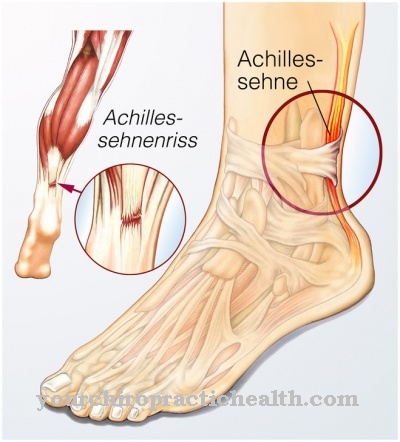

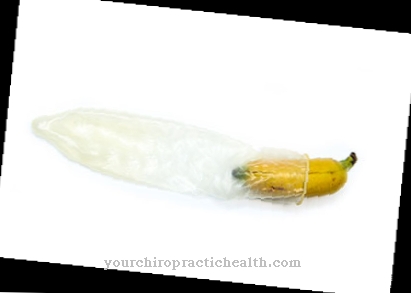
.jpg)
.jpg)



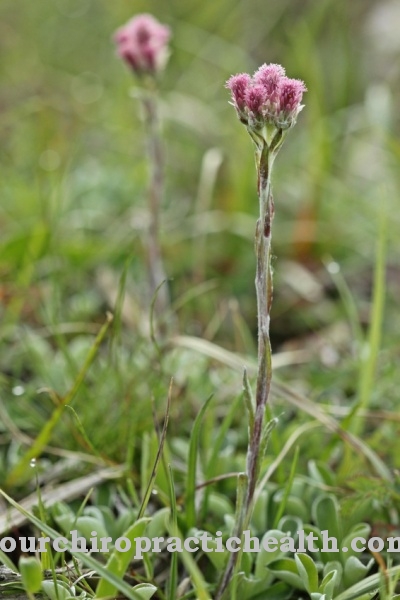

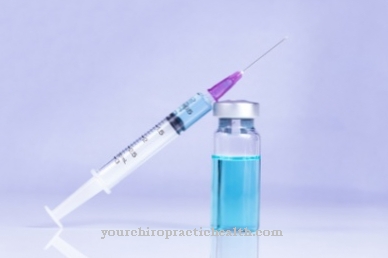
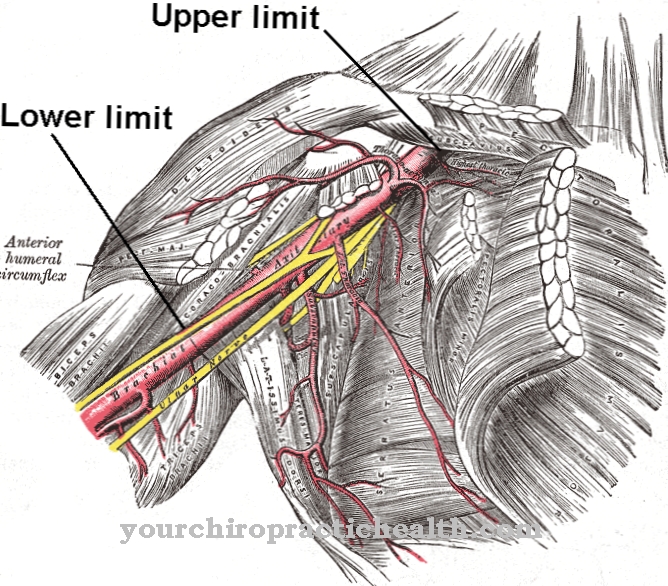




.jpg)




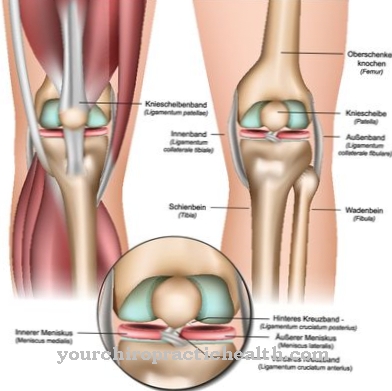
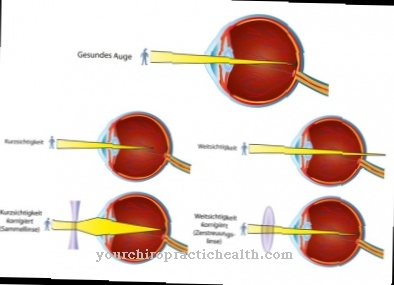
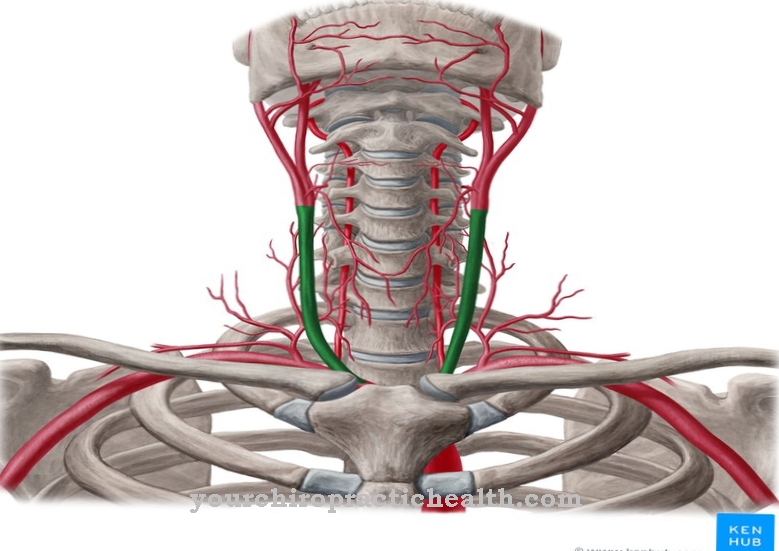
.jpg)


